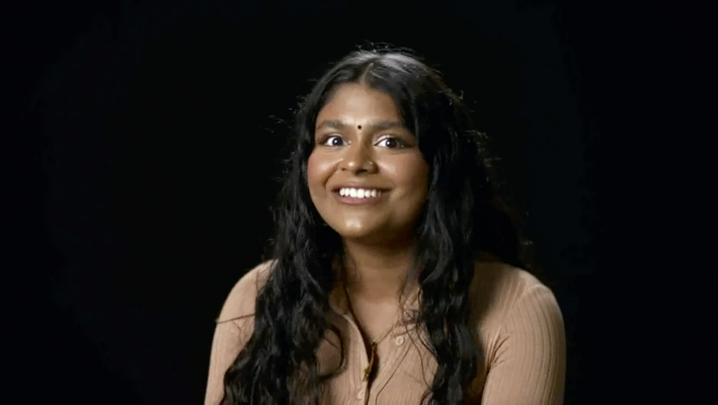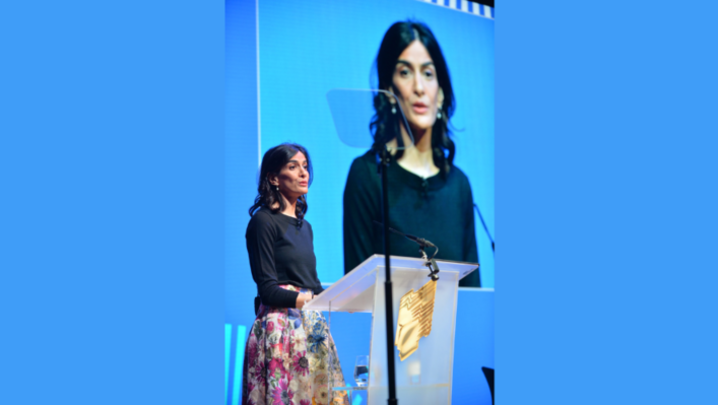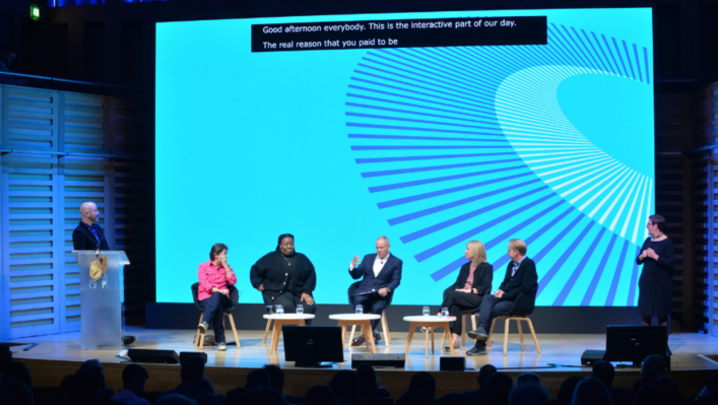Three revealing films on under-appreciated aspects of the black experience premiered at the Convention.
Between the sessions, delegates watched a series of three short films, Black Britain Unspoken. Commissioned by Warner Bros Discovery and Media Trust, they tease out often-overlooked nuances of life experienced by black British people and are airing on Discovery+ over the course of October’s Black History Month.
First up was The Nod: Tell Me You Got Me, an insightful exploration into the near-universal gesture recognised by black people who are otherwise unknown to each other.
Writer and director Richard Ampeh begins with street poetry to put the nod in context. Conjuring up the feeling of being ostracised walking through a non-black neighbourhood or the fear of black-on-black crime, he describes the release of tension when two strangers pass and “the feeling when we both catch a gaze/I look him dead in his face/He sees a king, I see a god/A subtle salute to my brother from another mother”.
One of several interviewees, DJ and presenter Trevor Nelson, teases: “It’s a secret, secret thing. We shouldn’t be talking about it. You’re messing with the mystique of it.”
The five-minute film looks at both the nod – eye contact and a subtle head nod, often combined with a double-tap to the heart – and the sentiment behind the gesture. Kurtis Coleman, an HGV driver, recalls learning it from his grandad, who came to England from Jamaica in the 1960s: “When he was here, racism was rife. He told me, ‘Always connect with other black people when you see them on the road, because you never know, it might save you one day.’”
For many, it’s a unifying gesture in a country in which they find themselves a minority. “It’s made us realise the strength of community,” says student Ayomide Akande.
Autism is the subject of the second film, Too Autistic for Black by Talisha ‘Tee Cee’ Johnson. The short is presented as a poetic letter to autism: “They say you usually go for someone male, usually pale. But looks like you knew we were a match from the start,” recites Johnson.
The multifaceted difficulties facing autistic black people is movingly painted by interviewees wearing a range of brightly coloured T-shirts to represent the diversity of a condition that shapes life at school, in the workplace, and through friendships.
“People see my skin colour before they see my autism…. I just wish that society would understand the cultural differences and the implications that come with it,” laments Lauren-Rochelle Fernandez, a consultant.
Melissa Simmonds, a campaigner for autism awareness, explains: “Too many black children receive late diagnoses because their behaviours are seen as aggressive instead of a communication difficulty. This leads to the school-to-prison pipeline.”
But the film ends on a positive note, with Johnson celebrating the strength of black autistic lives. “In true spectrum form, keep shining, headlining, black priding.”
In the final film, Sheila Kayuma’s The Power of Plantain, chefs Akwasi Brenya-Mensa and Victor Ofunime Okunowo discuss, celebrate and cook with the one ingredient that Brenya-Mensa describes as “synonymous with the black experience around the world”.
“I just want African food [to be accepted] as other cuisines have been,” says Okunowo. “You can go anywhere and find pizza. I want to be able to go anywhere and find plantain.”
The series Black Britain Unspoken, commissioned by Warner Bros Discovery and Media Trust, is available on Discovery+. Report by Shilpa Ganatra.





